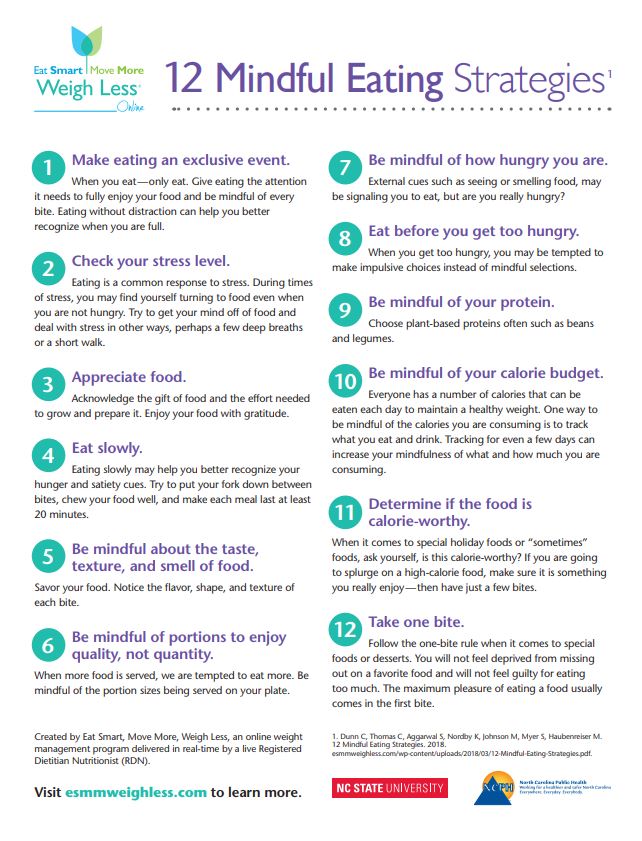

Diet Tips for Avoiding Late-Night Eating: Strategies to Curb Evening Hunger is a critical aspect of weight management, but it can be incredibly challenging. Late-night cravings often sabotage our best intentions, leading to increased calorie consumption and hindering our progress. This article delves into actionable strategies to conquer late-night hunger, offering a comprehensive approach to avoid overeating and achieve a healthier relationship with food. We’ll explore various techniques, from mindful eating to stress management, and offer practical solutions to help you conquer those midnight munchies. This guide will cover strategies like understanding your hunger cues, meal timing, and stress management, as well as dietary choices and practical tips for avoiding nighttime overeating.
Understanding the Science Behind Late-Night Hunger
Physiological Factors
Numerous physiological factors contribute to late-night cravings. One key element is the body’s natural circadian rhythm, which influences hormone production and hunger signals. As the day progresses, levels of certain hormones, such as cortisol, begin to fluctuate, potentially leading to increased hunger pangs in the evening. Another important consideration is blood sugar regulation. Fluctuations in blood sugar throughout the day, especially if combined with an inconsistent meal schedule, can create a surge in cravings as the day winds down. Furthermore, late-night eating often leads to a slower metabolism and subsequent weight gain. Therefore, addressing the underlying physiological aspects is paramount in successfully combating late-night hunger.
Psychological Factors
Sometimes, late-night cravings aren’t purely physiological. Psychological factors, such as stress or boredom, can trigger cravings, especially if you’re used to using food as a coping mechanism. For example, if you’re feeling anxious or stressed, you may turn to food for comfort, a behavior often exacerbated at night when there are fewer distractions. Furthermore, a lack of healthy coping mechanisms for stress can also contribute to nighttime snacking. Understanding the psychological connection to late-night eating can help develop healthier habits for emotional regulation.
The Impact on Weight Management
The relationship between late-night eating and weight management is undeniable. Consistent late-night snacking can significantly contribute to excess calorie intake, ultimately hindering weight loss or maintenance efforts. If you’re struggling with weight management, understanding the impact of late-night eating is a crucial first step in establishing healthier eating patterns. Studies have shown that individuals with irregular eating patterns and habits around meal timing often face greater challenges in maintaining a healthy weight.
Meal Timing and Portion Control
Optimizing Your Evening Meals
One effective strategy for curbing late-night cravings is to optimize your evening meals. This involves paying close attention to the timing of your meals and the portion sizes. Ensure your dinner is substantial enough to provide you with sustained energy throughout the evening without leaving you feeling overly full. If you tend to feel excessively hungry later, you may benefit from increasing the protein and fiber content of your evening meal. This strategy helps to fill you up, reducing the likelihood of late-night cravings. This requires careful attention to portion control, avoiding large portions that will trigger feelings of overfullness and eventual hunger.
Gradual Adjustments
Changing your meal timing gradually can be more effective than trying to make sudden shifts. By adjusting your dinner routine by 30-60 minutes each week, you can gradually align your eating pattern with your body’s natural rhythm. Small adjustments lead to bigger outcomes over time. You should also avoid consuming a large portion of your total daily calories in the later hours of the evening. Consistent meal timings and portion control can dramatically improve your success rate when managing late-night cravings.
Balancing Macronutrients
Paying attention to the macronutrient balance of your meals can also be beneficial. A balanced dinner with a good amount of protein and fiber can help you feel satisfied longer, decreasing the likelihood of late-night hunger pangs. Including whole grains, lean proteins, and plenty of fruits and vegetables can make all the difference in combating late-night eating.
Addressing Stress and Emotional Eating
Stress Management Techniques
Stress is a significant contributor to late-night eating. When stressed, your body releases cortisol, which can trigger cravings, especially for high-calorie, sugary foods. Regular stress management techniques such as exercise, meditation, or yoga can help regulate your cortisol levels and reduce the likelihood of emotional eating. Exercise can help release endorphins, which have mood-boosting effects, helping reduce emotional stress and cravings.
Finding Healthy Coping Mechanisms
Developing healthy coping mechanisms is crucial for dealing with stress without resorting to food. Identifying alternative activities to soothe stress or anxiety can be beneficial. This may involve engaging in hobbies, spending time with loved ones, or pursuing activities that promote relaxation and well-being. By implementing these strategies, you can reduce your dependence on food as a stress reliever, paving the way to a healthier emotional response to stress.
Creating a Relaxation Routine
Establishing a regular relaxation routine before bed can significantly impact your relationship with food. A consistent bedtime routine can signal to your body that it’s time to wind down, reducing the likelihood of late-night cravings. This routine could include reading, taking a warm bath, or practicing relaxation exercises.
Healthy Alternatives to Late-Night Snacks
Mindful Snacking
Mindful snacking is a powerful technique for recognizing and responding to your body’s hunger cues accurately. Practice paying attention to when you truly feel hungry, rather than when you’re merely bored or stressed. If you feel a craving coming on, try a mindful approach. Instead of automatically reaching for a snack, consider the reason behind the craving. If it’s emotional, use alternative coping mechanisms instead. This increased awareness can help you avoid overeating.
Healthy Snack Options
Consider alternatives to your typical late-night snacks. Choose snacks that are high in protein and fiber, such as Greek yogurt with berries, a handful of almonds, or a small piece of fruit. These options provide sustained energy and satiety, helping to manage hunger until morning. Remember to pay attention to portion control to avoid inadvertently consuming excessive calories. Keeping healthy snacks readily available in the kitchen or pantry can help to curb cravings if they strike.
Staying Hydrated
Sometimes, the feeling of hunger can be mistaken for thirst. Often, late-night cravings can be effectively managed by simply drinking a glass of water. Staying hydrated throughout the day can contribute significantly to managing feelings of hunger. This is a quick and easy method to help curb late-night cravings.
Creating a Supportive Environment
Limiting Temptation
Creating a supportive environment plays a key role in avoiding late-night eating. Remove tempting foods from your sight. If you have unhealthy snacks or desserts readily available, it will be easier to make healthier choices. If you anticipate you will have late-night cravings, making sure to have healthy snacks readily available can help avoid succumbing to temptation. Consider storing unhealthy snacks out of sight or placing them in a more difficult-to-reach location.
Planning Ahead
Proper planning allows you to anticipate potential triggers and develop strategies to overcome them. Understanding your triggers and cravings can lead to better control over emotional eating.
Seeking Support
Enlisting support from friends or family members can significantly impact your success. A support system can provide encouragement and accountability during challenging times. Having someone to lean on and support your journey to a healthier lifestyle can help you achieve your weight management goals. Sharing your struggles can help relieve some of the burden and provide motivation for success.
Additional Strategies for Long-term Success
Continued Support
Maintaining support from friends, family, or professionals can be essential for long-term success. Support from your peers and mentors can make a big difference in maintaining healthy habits and routines, enabling consistent adherence to weight management strategies. Sharing your successes and challenges with a supportive community can significantly improve your chances of achieving long-term success.
Regular Exercise
Regular exercise is another essential component of effective weight management and stress control. Engaging in physical activity has shown benefits for better mood, stress reduction, and regulating appetite.
Mindfulness Practices
Mindfulness practices can improve self-awareness and help in managing late-night cravings. Through mindful awareness you can recognize the signs of hunger and stress more accurately, enabling effective responses to cravings and emotional urges.
Addressing Specific Issues
Late Night Emotional Eating
Late night emotional eating is a complex issue. Identifying what emotional triggers might lead to overeating is key. It might involve underlying stress, anxiety, boredom, or loneliness. Address these root causes by using strategies for stress management. Engaging in emotional processing helps to redirect the energy toward more positive coping mechanisms.
Night Eating Syndrome
Individuals with Night Eating Syndrome have cravings and excessive eating at night. This condition needs professional help and diagnosis. Professional help is vital to address the potential underlying issues. Professional guidance can help to understand and manage the condition effectively, leading to a better health outcome.
Case Studies and Real-Life Examples
Example 1: Reducing Midnight Munchies
A study in the journal “Obesity Reviews” showed that individuals who consistently practiced mindful eating techniques experienced a significant reduction in midnight snacking habits. This illustrates how incorporating mindfulness into your routine can effectively combat late-night cravings.
Example 2: Weight Management Success
Numerous case studies highlight the importance of integrating strategic meal timing and portion control for weight management. These techniques are essential for those looking to achieve sustained weight loss and maintain a healthy lifestyle.
Long-Term Health Implications of Late Night Eating
Understanding the Impact
The effects of overeating at night often extend beyond weight management. Ignoring late-night cravings can negatively influence sleep quality, mood swings, and potentially contribute to long-term health problems like diabetes and heart disease. Understanding the broader implications of late-night eating empowers individuals to make informed decisions about their well-being.
Consistent Habits
Establishing consistent habits concerning meal timing and portion control is an ongoing process. It takes practice and persistence to build new habits, and the effort to sustain a healthy approach to late-night eating is worth the long-term health benefits. This involves consistent discipline and commitment to making mindful choices regarding eating patterns.
Long-term Wellbeing
Creating a routine for sleep is necessary for health and well-being, and recognizing the habits around late-night snacking can lead to lasting weight-management solutions.
Frequently Asked Questions
What are the best ways to identify triggers for late-night eating?
Identifying triggers for late-night eating involves self-reflection and understanding your own patterns. Keep a food journal and track what you eat, when you eat, and how you feel before and after each meal. Note any potential triggers, such as stress levels, emotions, or environmental factors. Paying close attention to these patterns can help identify recurring triggers and develop strategies to manage them effectively. By understanding your personal triggers, you can better equip yourself to make healthier choices.
How can I create a healthy bedtime routine to reduce late-night snacking?
Creating a healthy bedtime routine involves creating a consistent schedule for sleep. This includes establishing a relaxing pre-sleep routine that signals to your body that it’s time to rest. Engage in activities such as reading, taking a warm bath, or practicing relaxation exercises to calm your mind and prepare your body for sleep. Avoid screens before bed and ensure your bedroom is conducive to sleep, with a comfortable temperature and darkness. By consistently implementing these strategies, you can help create a natural sleep cycle that reduces the likelihood of late-night cravings and overeating.
In conclusion, avoiding late-night eating requires a multifaceted approach that combines mindful eating habits, strategic meal planning, and effective stress management techniques. By understanding your hunger cues, controlling portion sizes, and creating a supportive environment, you can successfully curb those late-night cravings and achieve your weight management goals. Ready to ditch the midnight munchies? Explore the strategies detailed in this article to master late-night hunger and enjoy a healthier, more fulfilling relationship with food. Visit our website for more resources on healthy eating and weight management tips.